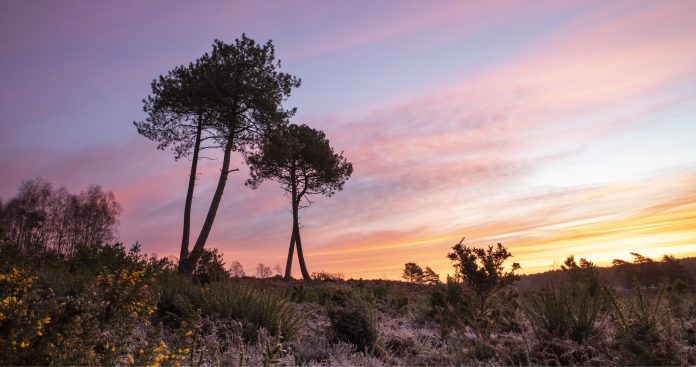This winter, Dorset Council will embark on an exciting and essential £1.2million project at Avon Heath Country Park to restore one of the world’s rarest wildlife habitats, lowland heathland.
Once seen as waste land, lowland heathland is now recognised as an important and unique ecosystem that supports rare and threatened wildlife. However, over the past 200 years, much of this precious habitat has been lost globally.
Around 2.5% of the world’s remaining heathland is located here in Dorset, with a significant portion at Avon Heath Country Park near Ringwood. The park’s unique heathland is home to all of Britain’s native reptile species, including the elusive Smooth Snake, and provides critical nesting grounds for birds like the Nightjar and Woodlark.
Starting this month, Dorset Council, with support and funding from Natural England, will begin a 2-year restoration project to remove some of the invasive pine trees from the 210-hectare site at Avon Heath. These coniferous trees, originally planted for timber, have spread through self-seeding and now threaten to destroy the heathland by blocking out sunlight that is essential for heather growth.
The Site of Special Scientific Interest (SSSI) at Avon Heath Country Park is internationally recognised for its rare lowland heath. And, as site owner, Dorset Council has a legal responsibility to maintain and enhance it. In addition to felling trees, restoration efforts will also include the removal of scrub and other invasive species, such as Rhododendron, to help reverse the loss of this important habitat.
Cllr Nick Ireland, Leader of the Council and Cabinet Member for Climate, said:
“This project at Avon Heath Country Park is crucial for recovering nature in our county and will help safeguard some of our most endangered wildlife. As custodians of a significant portion of the world’s remaining lowland heathland, we have a duty to do everything we can to protect this unique habitat for the future.
“And while removing trees during a climate emergency may seem counter-intuitive, heathlands play an important role in tackling climate change too. Their soils are excellent at absorbing carbon from our atmosphere and locking it away permanently.”
The timber removed from Avon Heath will support local projects, being repurposed for various uses such as construction materials, fence posts, and wood chips for carbon-neutral energy production. This will help reduce the need to import wood into our county, in addition to protecting some of Dorset’s rarest native wildlife.
Efforts to protect the county’s best natural habitats and landscapes also plays a significant role in attracting over 1.6 million visitors a year to Dorset Council’s 4 country parks.
Funding for this exciting project comes from the Department for Environment, Food and Rural Affairs (Defra).
To learn more about what Dorset Council is doing to help recover nature in the county, visit www.dorsetcouncil.gov.uk/nature-recovery.







